[Disclaimer: LebNet needs the members' support to sustain its internship program and keep it going. Find out how you can help by visiting this link.]
A great internship opportunity can set the stage for a strong start to any career.
In 2019, LebNet launched its internship program to provide internship opportunities to Lebanese students residing in North America and Lebanon. The program offered internships in the areas of technology and biotech with 7 opportunities in its first year, 9 in 2020 and growing to over 23 in 2021. Most of the opportunities were filled by enthusiastic students eager to gain experience before going into the workforce.
To guarantee the success of the program, LebNet worked with reputable US and Canada based companies such as BridgeAthletic, Ecrio, Joun, Technologies, Orderbot,Probi Solutions, SPARK Microsystems, Sowlutions,Turo, Qnovo Corporation, Wearable Sensing, and many others. They all hosted interns during the summer months and gave them exciting projects to work on. The internship opportunities were listed on the Lebnet platform and interested applicants went through an internal screening process before being introduced to the companies.
“I am impressed with both their skills and hunger to learn! They were focused and executed on their tasks in a very conscientious way” said Fram Akiki, President at hosting company Joun Technologies.
“We are very happy with our intern. He presented to the company management the work he has done on AI/ML and I was quite impressed,”said Michel Gannage, Founder and CEO at Ecrio Inc.
“Both our interns are crushing it! The team and I are very impressed. Thank you LebNet for making it happen,” said Fadi Zoghzoghi, CTO at BridgeAthletic.
How the pandemic broke boundaries and barriers
In the summer of 2020, LebNet had to temporarily suspend the internship program due to COVID-19, but decided the following year to switch to remote internship opportunities to keep the initiative going. Luckily for them, Lebanon-based students now had a greater chance to intern at global companies as they no longer needed to obtain a pre-authorization to intern or work in the US and Canada.
“In the past year, companies have realized that remote work is possible and productive. This allowed us to open up our internship opportunities to students residing in Lebanon” said Jeanine Akiki, LebNet’s executive director and internship program lead.
The first three years were indicative of a thirst for technical know-how and practical skills and the feedback received from our students highlights how crucial it is to continue expanding this program and its opportunities. Jeanine adds, “we will continue to expand this program by reaching out to more companies in North America and offering a wide variety of internship opportunities to students of Lebanese descent here and in Lebanon The talent, creativity and work ethic that our students bring are highly valued.”
What our students had to say about our program
Rayan Al Sarih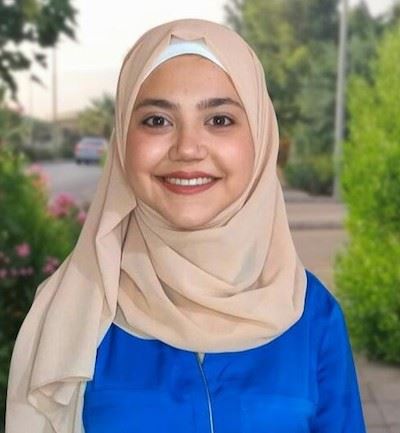 , Electrical and Computer Engineering at Joun Technologies
, Electrical and Computer Engineering at Joun Technologies
“Thank you LebNet for the internship opportunity! I am so excited to have done this research about the internet of things! I look forward to continuing my growth as an engineer and using this new knowledge in projects that serve the environment in the future.”
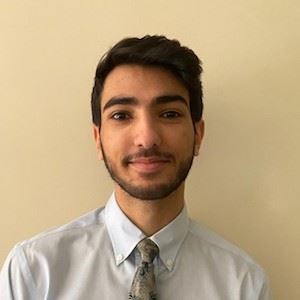 Bashar Baajour - Software Engineering Internship with Turo
Bashar Baajour - Software Engineering Internship with Turo
“It was an amazing experience all around. The internship has helped me grow immensely on a professional level. I also learned a lot about the work environment and met a lot of great people. I think the internship program itself is really great.”
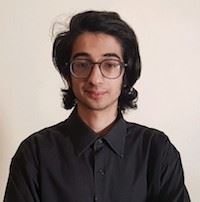 Khaled Baghdadi - Software Engineer Internship at Ecrio
Khaled Baghdadi - Software Engineer Internship at Ecrio
“What I loved about the experience is that we were working as a team towards the same goal even though we come from different countries and backgrounds.”
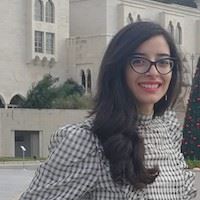 Heba Harb, Computer Engineering at Joun Technologies
Heba Harb, Computer Engineering at Joun Technologies
"Thank you LebNet and Joun Technologies for giving me the opportunity to widen my knowledge in the field of digital transformation generally and digital twin specifically. It was a wonderful experience learning from experts and understanding the research procedure."
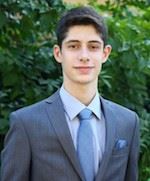 Rami Ismail - Software Engineer Internship with ProBi Solutions
Rami Ismail - Software Engineer Internship with ProBi Solutions
“The internship was very interactive. I learned a lot about teamwork and cooperation as well as working with the Agile methodology. I also honed and upgraded my skills in the field.”
 Anthony Kahwaji -Industrial Engineering at Sowlutions
Anthony Kahwaji -Industrial Engineering at Sowlutions
“I have had a great experience so far! I got the chance to work as a product manager on launching, optimizing and growing four products from startups based in the US, the Middle East and Africa. I felt like I was a full-time employee rather than an intern which was great! The process was streamlined and easy. The program manager Jeanine Akiki was extremely helpful from the time I applied through LebNet to when I got accepted at Sowlutions.”
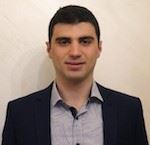 Garo Keuchkarian, Electrical Engineer Internship at Joun Technologies
Garo Keuchkarian, Electrical Engineer Internship at Joun Technologies
“LebNet gave me a ray of hope in the darkest times of Lebanon’s history. I worked with Joun Technologies on a Machine Learning and object detection project which I was truly inspired by. The experience was very insightful, interesting and well organized.”
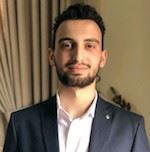 Hisham Masri - Engineer/Computer Scientist Internship with BridgeAthletic
Hisham Masri - Engineer/Computer Scientist Internship with BridgeAthletic
“The internship was great in all aspects. It gave me a lot of valuable assets and the chance to technically contribute to real-life situations. I also got to learn from people from all over the globe. The lessons ranged from personal to leadership and technical skills. I worked with many people from diverse ethnicities and participated in a lot of daily meetings that were deemed valuable to my communication and leadership skills. Technically, the company helped me get introduced to Git and Github, in addition to SQL and many new Python programming libraries. It was a brilliant experience.”
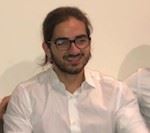 Anthony Moubarak - Engineer/Computer Scientist Internship at BridgeAthletic"From a technical standpoint, I improved my coding and algorithm building skills and how to deploy models that can be used by other people - something which will benefit me for the rest of my career in data science. Additionally, I got hands-on experience on how software-oriented companies operate in the short and long term. From a personal standpoint, the team spirit at the company was exceptional. The remote work aspect gave me the chance to improve my time management and productivity skills. The process of applying through LebNet was very smooth and what I really liked about LebNet is that the first interview heavily focused on who I am as a person, which I personally think is more valuable than anything else.”
Anthony Moubarak - Engineer/Computer Scientist Internship at BridgeAthletic"From a technical standpoint, I improved my coding and algorithm building skills and how to deploy models that can be used by other people - something which will benefit me for the rest of my career in data science. Additionally, I got hands-on experience on how software-oriented companies operate in the short and long term. From a personal standpoint, the team spirit at the company was exceptional. The remote work aspect gave me the chance to improve my time management and productivity skills. The process of applying through LebNet was very smooth and what I really liked about LebNet is that the first interview heavily focused on who I am as a person, which I personally think is more valuable than anything else.”
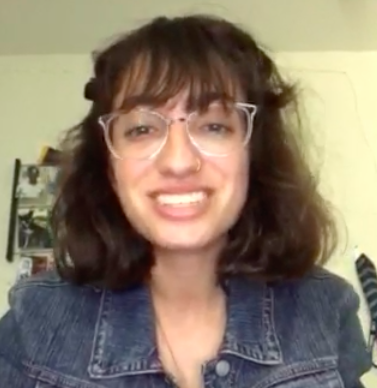 Anna Rita Moukarzel, Mechanical Engineering at Wearable Sensing
Anna Rita Moukarzel, Mechanical Engineering at Wearable Sensing
“LebNet helped facilitate an amazing internship opportunity. Their application process made the experience of finding an internship smooth and easy.”
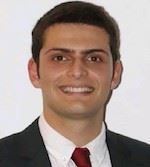 Hanna Saade - Mechatronics Engineer Internship at Joun Technologies
Hanna Saade - Mechatronics Engineer Internship at Joun Technologies
“It was a great experience, very professional yet enjoyable. I learned about the importance of hard work and commitment to succeed at work. It was very beneficial and needed due to the number of crises we are facing in our country Lebanon.”
LebNet is already preparing for a new edition for the summer of 2022 so stay tuned!
